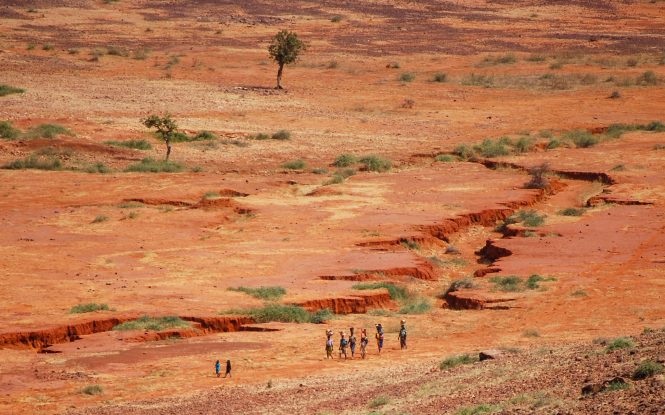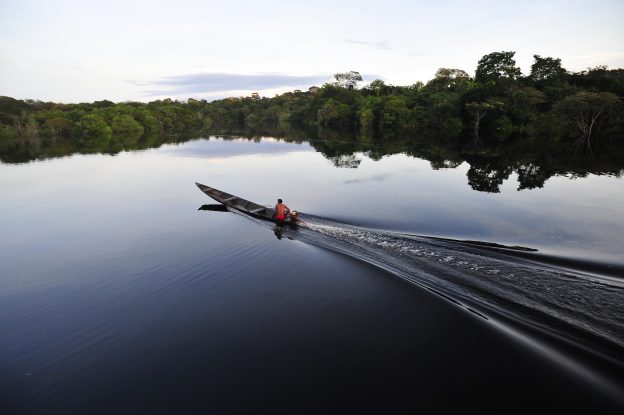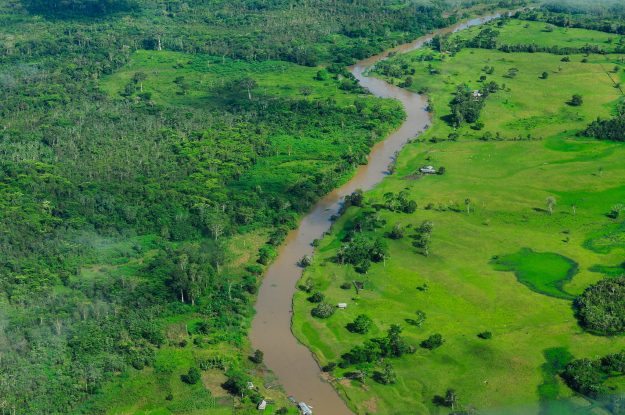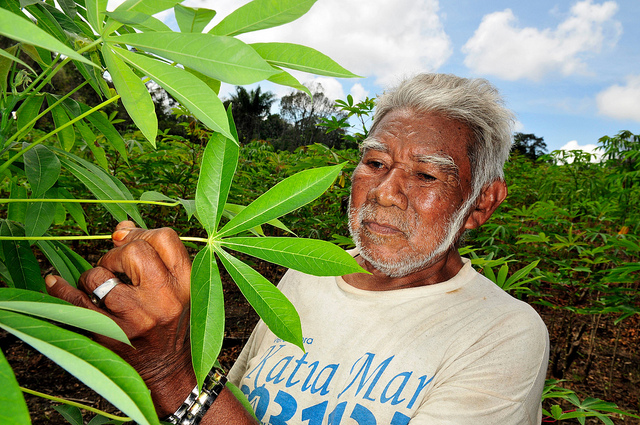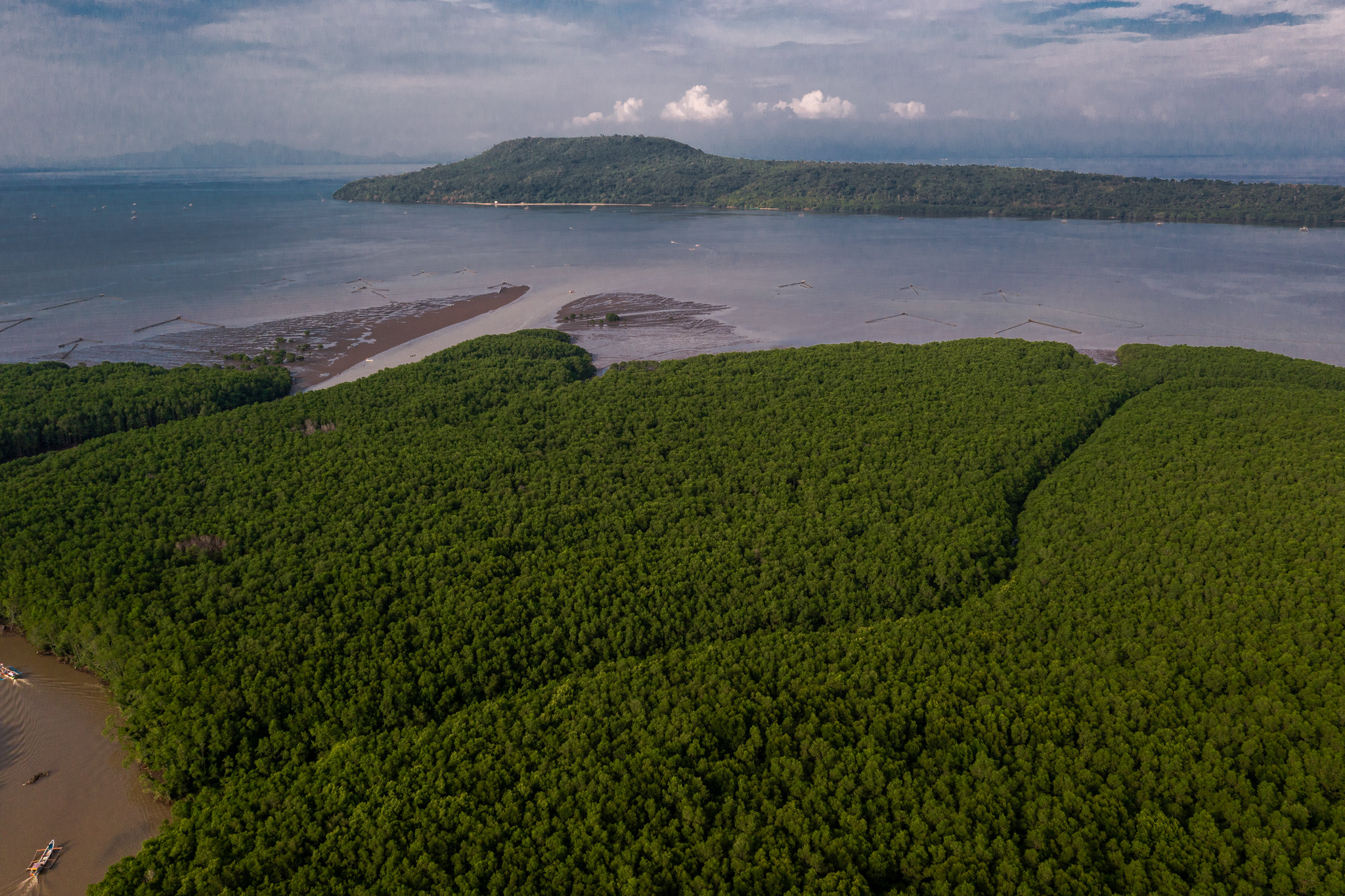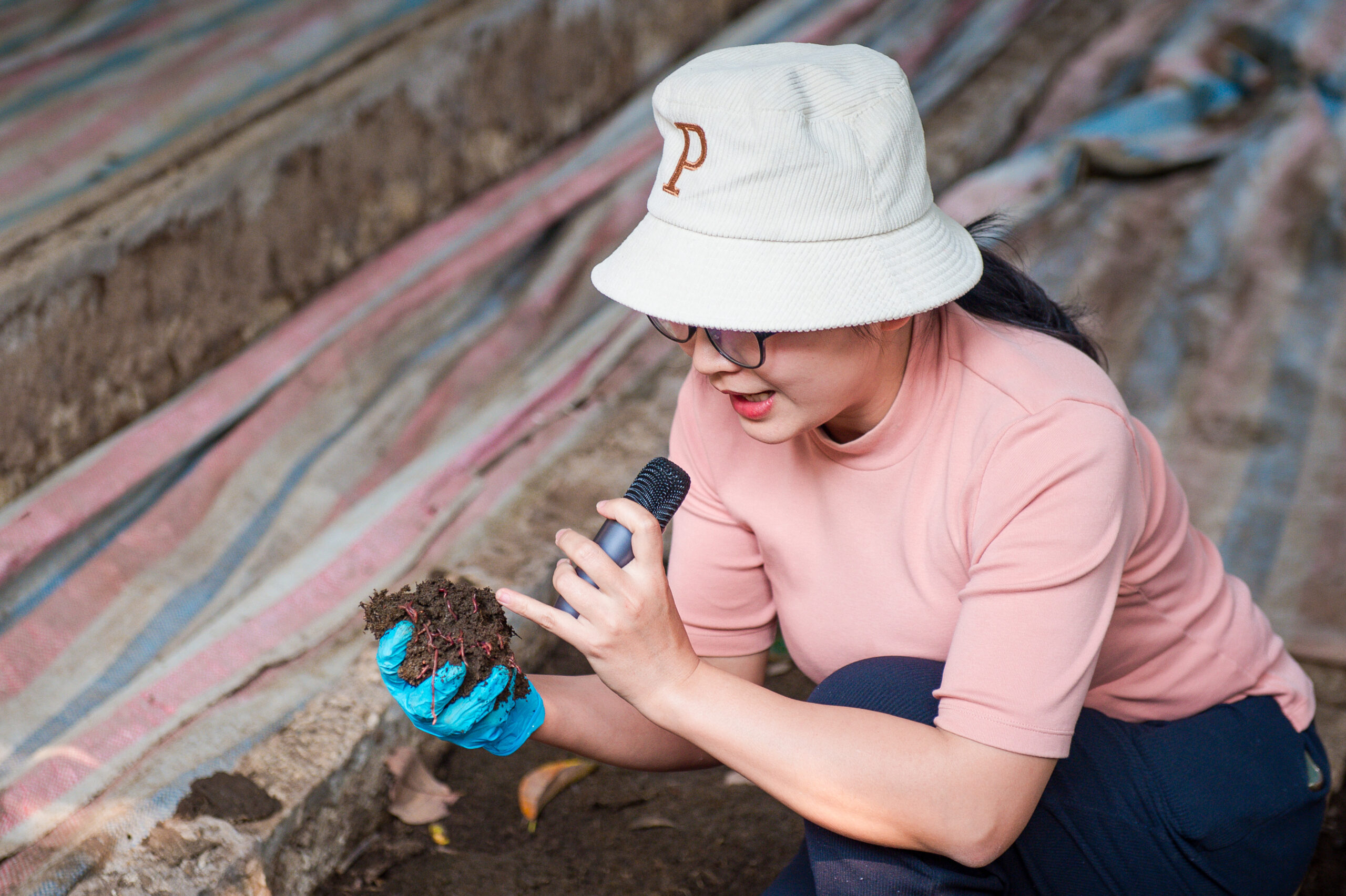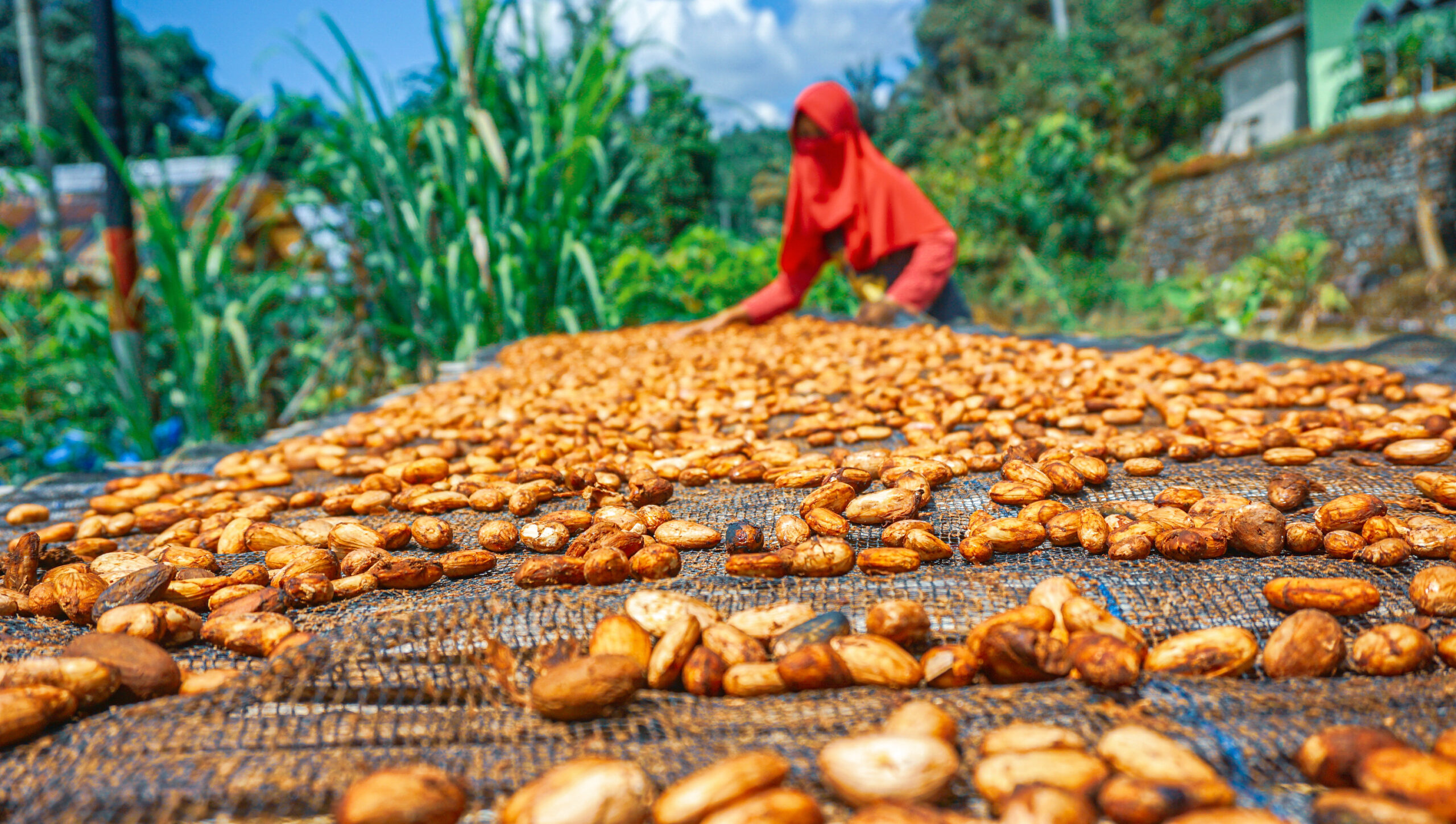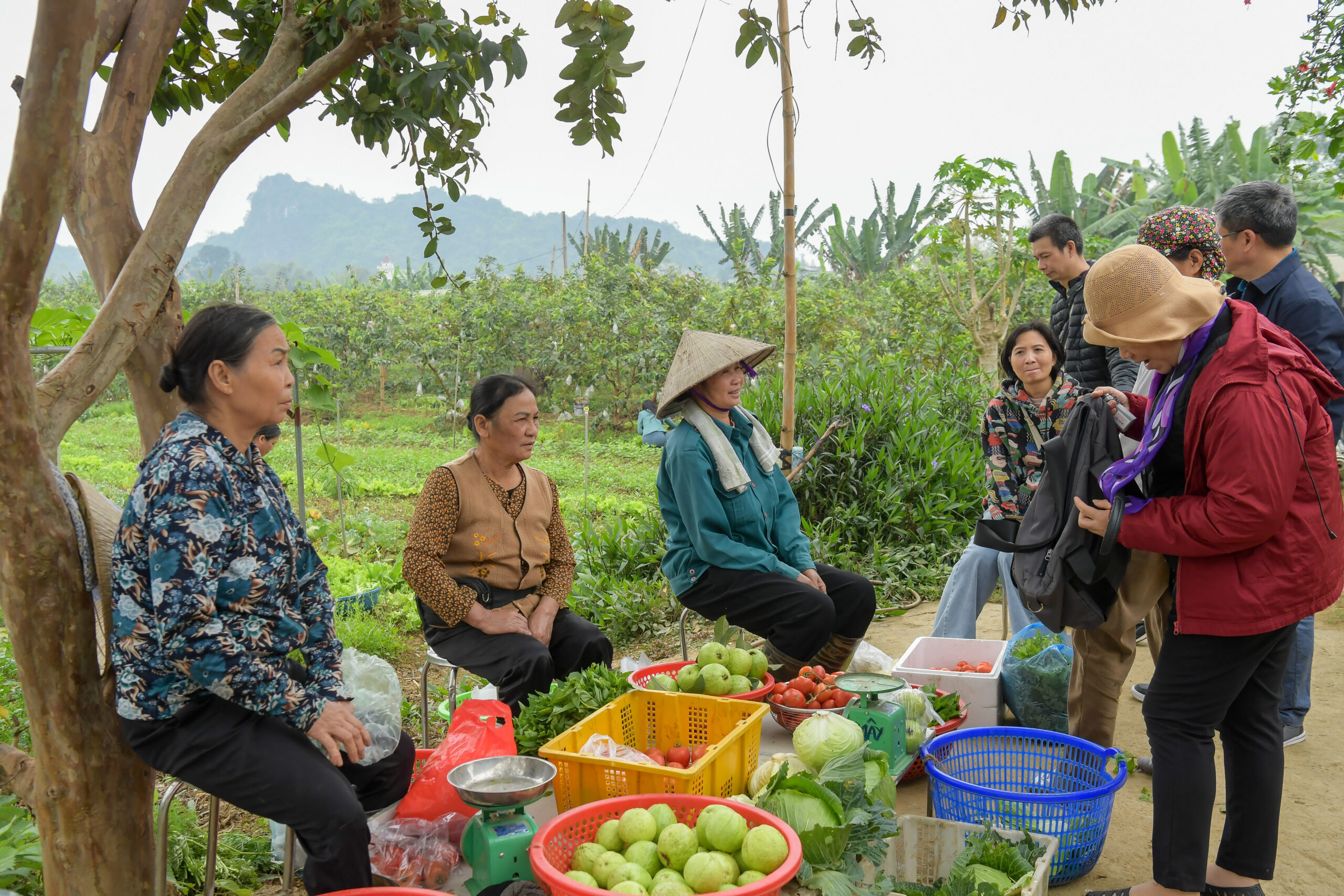Tropical forests hold many valuable resources—timber, fuelwood, bushmeat—that are considered “common-pool” goods. They are finite, shared by all, owned by none. When individuals act only in their own interest, these resources can quickly vanish.
What, then, persuades people to use them fairly and sustainably—and to ensure their peers do the same?
That question lay at the heart of a recent study by Arild Angelsen and Julia Naime, scientists with the Center for International Forestry Research and World Agroforestry (CIFOR-ICRAF) and the Norwegian University of Life Sciences (NMBU).
As anyone who has tried to slice a cake at a child’s birthday party knows, resource-sharing involves an uneasy choice: do I take as much as I can now, or do I leave enough for everyone else, and for later? This dilemma is often called the “tragedy of the commons.” Yet, as Angelsen and Naime write, “the tragedy is not inescapable.”
And learning to do so will be critical to global conservation efforts—especially in remote, rural contexts where formal, external institutions do not always have effective reach.
When punishment meets cooperation
For self-governing groups to manage their resources sustainably, a couple of key things are usually required: a sufficient number of people making cooperative choices that benefit the collective and consequences for those who decide to ‘free-ride’ by taking more than their share. Community forest management, for instance, is understood to rely on these mechanisms to be effective.
Yet therein lies a challenge: punishment often yields pushback. Those who call out free-riders for the good of the collective may face retaliation —sometimes direct revenge from those punished, sometimes from other free-riders who escaped sanction. Think back to school, when few wanted to be known for reporting a classmate. That same dynamic plays out among adults, discouraging people from speaking up for the collective cause. To explore these issues and to test whether cultural contexts made a difference, Angelsen and Naime conducted framed field experiments (FFE). These are interactive role-play games with real monetary stakes, where both individual and group outcomes determine payment. The FFEs were held with 720 smallholder forest users in three areas rich in common access tropical forest: Pará in Brazil, Central Kalimantan in Indonesia and Ucayali in Peru. “During the FFE, a group of six local forest users faced a social dilemma framed as a decision about how many plots to convert to agriculture from a common access forest,” explained the co-authors. “Conserving the forest gave higher aggregate benefits to the group in the form of a collective payments for ecosystem services(PES) scheme, but deforestation gave more agricultural income to the participant than the individual loss of PES income.” Then, participants made two decisions: first, how many plots to convert, and then — after the results were revealed — whether to punish other members for converting too much, or for any other reason. (The true identity of the other members was concealed to avoid post-experiment retaliation.) From these decisions, the scientists created a typology of actors. Punishment was either ‘prosocial’ — when it targeted the free-riders — or ‘antisocial’, when it targeted those who cooperated more. Prosocial punishment was usually motivated by fairness and equality from the punisher, since it reduced the above-average benefit of free-riders. Punishing antisocially, on the other hand, can be driven by feelings of spite or revenge on peers who cooperate more. Antisocial punishers can also gain benefits from reducing others’ payoffs. Some cases of antisocial punishment seen in the game may have been direct retaliation for being punished in an earlier round. Across the three research areas, the researchers found that the cooperators and prosocial punishers (which they dubbed Homo reciprocans) were the most common type of punishers, while the Saboteurs (free riders that also engage in antisocial punishment) were the least common group, with about 70% of punishments being prosocial and the remaining 30% being antisocial. “When the ‘bad guys’ start punishing the ‘good guys’, things can fall apart.” To understand the impacts of inequality on peer punishment, the researchers conducted some experiments in which each participant began with an equal number of forest plots and others in which the amount was unequal. A much higher proportion of people engaged in punishments in the unequal groups, indicating “the ambiguous way in which inequality affects punishment patterns,” the authors wrote: “it increases both the share of prosocial and antisocial punishers.” Peer punishment makes free riding costly and pro-social punishment improved group performance by inducing over-exploiters to reduce their forest conversion. Yet, the high share of anti-social punishment — as found in this and other experimental studies — reduces the effectiveness of self-governing groups. “When the ‘bad guys’ start punishing the ‘good guys’, things can fall apart,” said Angelsen. The researchers found significant differences in behaviour across cultural contexts. Specifically, the Indonesian groups administered much higher numbers of punishments—particularly pro-social ones. This may be due to “stronger norms and preferences for equality and fairness” as well as “higher acceptance of both physical and verbal confrontation of norm violations” in Indonesia than in the two South American countries, they wrote. Overall, the research suggests that peer punishment can “deliver on conservation outcomes and reduce deforestation in the context of collective PES”. However, peer punishment can also incur negative individual and collective impacts, and these need to be considered and accounted for in policies concerning the management of common pool resources. “Self-enforcement in the form of peer punishment entails a risk of engaging in antisocial behaviour which—besides being costly to both the punisher and the punished—has a negative effect on future cooperation,” noted the authors. Acknowledgments This research is part of CIFOR-ICRAF’s Global Comparative Study on REDD+. It was made possible through the support of the Norwegian Agency for Development Cooperation (Norad), the Australian Department of Foreign Affairs and Trade (DFAT), the European Commission (EC), the International Climate Initiative (IKI) of the German Federal Ministry for the Environment, Nature Conservation, Building and Nuclear Safety (BMUB), the UK Department for International Development (UKAID) and the CGIAR Research Program on Forests, Trees and Agroforestry (CRP-FTA), with additional contributions from donors to the CGIAR Fund.
Field experiments in three countries
Inequality and cultural contrasts

